Archive for June, 2012
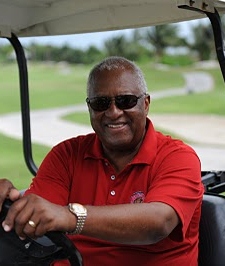
Electric car dealer says safety has been addressed
 (CNS): Cayman’s exclusive electric car dealer, who has been campaigning for almost a decade to get the eco-cars on to local roads legally, has written to the ministry about the delay in the traffic law. Despite passing a new traffic law in November, paving the way for the registration of electric cars, the legislation has not yet come into force because of a delay to the regulations, which the wroks ministry recently implied was mostly down to safety issues over the electric vehicles. However, John Felder has pointed out that not only did he offer a series of free training seminars, all of the cars he imports meet all the safety requirements of the US National Institute of Highway Safety.
(CNS): Cayman’s exclusive electric car dealer, who has been campaigning for almost a decade to get the eco-cars on to local roads legally, has written to the ministry about the delay in the traffic law. Despite passing a new traffic law in November, paving the way for the registration of electric cars, the legislation has not yet come into force because of a delay to the regulations, which the wroks ministry recently implied was mostly down to safety issues over the electric vehicles. However, John Felder has pointed out that not only did he offer a series of free training seminars, all of the cars he imports meet all the safety requirements of the US National Institute of Highway Safety.
Felder, who has never given up on his goal of selling electric cars here that can drive on all the roads, told the ministry he was grateful to all the officials that “have spent so many hours finalizing the New Traffic Law” and he was looking forward to its implementation.
Pointing out that government could have facilitated the use of electric cars on the highway under the old law, he said that nevertheless he respected government’s decision to overhaul the existing legislation. However, Felder said he regretted that the regulations regarding electric vehicle have slowed the process and they were not addressed ahead of the rest of the regulations. He dismissed the safety fears and pointed out that these vehicles are now in use across the world.
“We are extremely comfortable with all aspects of the safety of Highway Speed Electric Vehicles (HSEV) and are quite sure that the regulators here have satisfied themselves of the safety aspects by looking at other jurisdictions which have permitted electric vehicle licensing for public road use,” he said, adding that he had hosted a special meeting for emergency personnel.
“Regarding the 'First Responders' and issues relating to the safe handling of the Lithium Ion batteries, Cayman Automotive held a special meeting with all the First Responders and the Department of Licensing and Registration last year to address all concerns,” Felder said in his letter to the minister responsible, Juliana O’Connor Connolly.
“The safety of our customers will never be compromised and for this reason I have made a personal decision that only HSEV’s will be sold in Grand Cayman that meet all the safety requirements of the National Institute of Highway Safety in the United States,” he added.
Felder pointed out that all the cars sold by his dealership, Cayman Automotive, are equipped with impact sensors that disconnect all power from the Lithium battery pack in the event of an impact of 30g or greater or airbag deployment. He said this means emergency personnel at an accident scene can work on victims without worrying about the danger of shock to either the victims or themselves from the Lithium battery pack.
“My goal is to make the Cayman Island the model for the Caribbean by assisting in a cleaner environment, providing safe and more economic transportation and advancing all aspects of alternative energy," he said.
Felder has been importing cars for some time in anticipation of the new law and has invested more than $100,000 in green vehicles as well as developing plans for solar power charging stations across the islands.
In a release from the ministry last week O’Connor Connolly distanced herself and the ministry from any responsibility for Felder’s decision to import the cars when she said the ministry had communicated over the years to various car dealers in Cayman that a fully electric vehicle could not be registered and licensed due to the technical components of the vehicles.
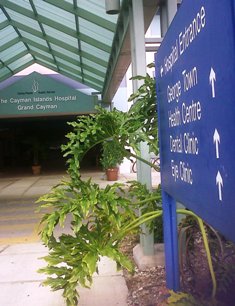
Widower sues hospital over wife’s death
 (CNS): A 67-year-old man has filed a law suit against the Cayman Islands Health Services Authority (HSA) after his wife died of cancer in 2009. Harold Paramlall claims that as a result of misdiagnosis by the hospital his 61-year-old wife died prematurely. Claiming negligence on the part of hospital staff, Paramlall is suing for medical expenses, loss of earnings and damages from the court. He claims that samples taken from his wife’s test that came back negative in 2004 were the same slides that showed up the cancer in 2006. In his statement of claim the plaintiff says the HSA failed to “provide suitably experienced staff” capable of diagnosing his wife’s cancer.
(CNS): A 67-year-old man has filed a law suit against the Cayman Islands Health Services Authority (HSA) after his wife died of cancer in 2009. Harold Paramlall claims that as a result of misdiagnosis by the hospital his 61-year-old wife died prematurely. Claiming negligence on the part of hospital staff, Paramlall is suing for medical expenses, loss of earnings and damages from the court. He claims that samples taken from his wife’s test that came back negative in 2004 were the same slides that showed up the cancer in 2006. In his statement of claim the plaintiff says the HSA failed to “provide suitably experienced staff” capable of diagnosing his wife’s cancer.
“The Defendant's staff were not suitably experienced in diagnostic techniques and should have referred the deceased overseas immediately carcinoma was discovered,” Paramlall states in his writ filed in the Grand Court earlier this month. He also claims the George Town hospital failed to provide adequate or proper post-operative treatment after his wife had a hysterectomy as it did not have “proper regard for the deceased's symptoms by taking note of the deceased complaints”.
Paramlall says that after her operation his wife complained of severe abdominal pains, which should have alerted the doctor in question to the probability that complications had developed.
The widower says because of the negligence he and his family have been occasioned pain and suffering. He also states that prior to her death his wife had been a strong hardworking woman engaged in community activities and looking forward to continuing to spend time with her husband, her children and grandchildren into her golden years.
The deceased was both a career person approaching retirement and an economical and efficient housewife, managing the home. As a result of the illness she was forced to give up the final 6 months of her working life resulting in a loss of salary of $113,033.44.
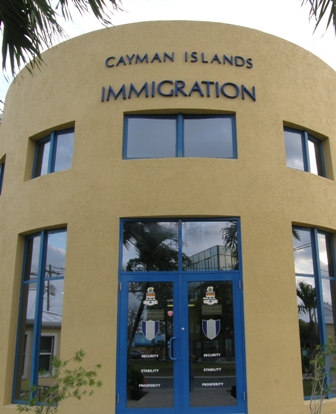
Key wrong way to choose
 (CNS): The key employee mechanism creates “an artificial vetting system” for choosing who should get to stay in Cayman because it is controlled by employers and unfair to employees. In a new report the Term Limit Review Committee (TLRC) has recommended that government abolish the key employee policy and give everyone who wants to stay the right to apply for permanent residency once they reach their eighth year. The committee says that the criteria used to select who should get PR needs to be in line with government objectives and more transparent. The TLRC has recommended that government maintain a 10 year fixed term for those refused PR with a genuine break in stay of at least one year.
(CNS): The key employee mechanism creates “an artificial vetting system” for choosing who should get to stay in Cayman because it is controlled by employers and unfair to employees. In a new report the Term Limit Review Committee (TLRC) has recommended that government abolish the key employee policy and give everyone who wants to stay the right to apply for permanent residency once they reach their eighth year. The committee says that the criteria used to select who should get PR needs to be in line with government objectives and more transparent. The TLRC has recommended that government maintain a 10 year fixed term for those refused PR with a genuine break in stay of at least one year.
The committee, which was formed last year, submitted its comprehensive report to government last month, which was made public by the premier on Friday in the Legislative Assembly. McKeeva Bush said that Cabinet had not yet accepted or discussed the recommendations as he said it wanted more input and feedback from the public.
“Given the high profile nature of this subject and to ensure openness and transparency within my government, I am tabling this report today in order to provide the public with an opportunity to review and provide comments,” he said.
He added that he had asked the committee to produce a draft National Population Growth Strategy that will set out the minimum size of the population and the required annual growth, skill sets and expertise that are required and a projected demographic mix of the population.
In the report the committee said government still needed a fixed term policy of some kind in order to prevent people becoming long term social and economic burdens to the country as it recommended a ten year limit, allowing all those who stay the chance to get PR via a clearer system. The team said that the key employee policy was unsatisfactory as it allowedemployers to choose who should stay and so far only a very small percentage of the workforce has passed through the key filter, which may have prevented suitable people from being given the chance to apply for PR.
They report suggests that all workers should be able to apply for the right to reside permanently in Cayman between year 7 and 8 on a points system that meets the country’s economic and social objectives. The committee also recommends that the ten year system apply to public sector workers as well to ensure there is a level playing field.
The changes will require sufficient funding for the immigration department so it can attract and hire sufficiently well-qualified personnel to carry out the work that will be required under the system to ensure PR applications are handled in a timely manner.
The public also need to be properly educated about the government’s overall immigration strategy, while at the same time promoting the training and upward mobility of Caymanians. Those coming to work in Cayman must also understand the fixed-term policy and the criteria on which long-term residency can be acquired. The workers must understand that the break in stay will be considered a legal break in their residence and will disallow the right to apply to permanently reside until they once again attain the qualifying period if they return to the islands after the break.
The team said government needs to settleon a policy for the long run which provides certainty and predictability for employer and employee and which avoids the uncertainty of constantly moving goalposts.
The public is being asked to submit comments on the report, which is available at the Legislative Assembly, within the next 30 days. Comments on the report can be sent to tlrc@gov.ky.
Read full report: Report of the Term Limit Review Committee (TLRC).pdf
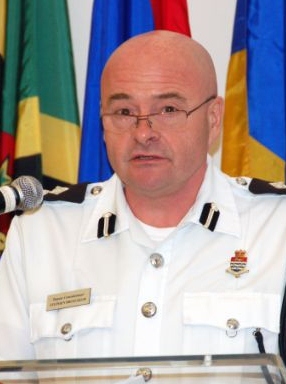
Small nations challenged in crime fight
 (CNS): Deputy Commissioner of Police Stephen Brougham said some of the challenges of forensic evidence gathering for small Caribbean nations included cross-contamination when evidence is sent overseas. Speaking at the first meeting of regional public prosecutors in Cayman last week, the senior cop said that some serious cases had been lost in Cayman’s courts recently when gunshot residue and DNA evidence was thrown because of the potential of contamination. Even in relatively simple cases, Brougham said, evidence might have to be shipped to three to four different laboratories and experts, introducing added problems for law enforcement officials.
(CNS): Deputy Commissioner of Police Stephen Brougham said some of the challenges of forensic evidence gathering for small Caribbean nations included cross-contamination when evidence is sent overseas. Speaking at the first meeting of regional public prosecutors in Cayman last week, the senior cop said that some serious cases had been lost in Cayman’s courts recently when gunshot residue and DNA evidence was thrown because of the potential of contamination. Even in relatively simple cases, Brougham said, evidence might have to be shipped to three to four different laboratories and experts, introducing added problems for law enforcement officials.
The issue of the need for more reliable forensic evidence in order to secure convictions for serious crime was one of the main issued highlighted at last week’s newly formed Caribbean Association of Prosecutors two-day workshop, which was designed to provide insights into forensic science and trans-national crimes. Twelve experts from the UK, Canada and the Eastern Caribbean provided the training to take forward the workshop’s theme: 'Enhancing the Effectiveness of Prosecutors in a Challenging Environment'.
There were 63 participants from some 19 territories and countries from the region. Speakers at the opening ceremony highlighted the need for more reliance on non-eyewitness evidence for use in court cases because of increasing reluctance of witnesses to come forward and the threats to those who do.
Governor Duncan Taylor said the challenge of serious crime that Caribbean countries face is compounded by the economy of scale in small nations which limits forensic growth, as he welcomed the association taking a collaborative approach to improving effectiveness in fighting and prosecuting crime.
Cayman’s Director of Public Prosecutions, Cheryll Richards, said this new association provided members with continuing education opportunities to better perform their jobs.
Cayman’s hosting of the first such workshop was the outcome of joint collaboration of the Eastern Ontario Regional Forensic Pathology Unit, the Commonwealth Secretariat and the OTD Criminal Justice Office of the British Consulate-General in Miami.

Teen arrested over house fire
(CNS): An 18-year-old girl has been arrested following a house fire in the early hours of Sunday morning in Oakmill Street, Windsor Park. At around 3.20am police and fire fighters attended at the location of the burning house. All the occupants were safely removed from the house by emergency crews. Police said that the teenager was arrested at the scene on suspicion of arson and transported to West Bay police station. The RCIPS said enquiries into the cause of the fire are ongoing.

Queen names Caymanians for top royal gongs
 (CNS): In her 2012 birthday honours list the queen has handed out two MBEs as well as one Overseas Territories (Police) Medal to Caymanians. The governor has named two more to receive the Cayman Islands Certificate and Badge of Honour. Martyn Bould, chair of the CNCF board chair, and Dr.Sook Lee Yin-Eccles, who is medical director of the Cancer Society, have been made MBEs for their respective services to cultural preservation and medicine and charitable organisations. Davis Harrison Scott, a senior officer with the RCIPS, received the OTM for meritorious service. Meanwhile, Governor Duncan Taylor has named Nicole Tyson-Petit and James Young Scott as CERT Hons for their work in government and the construction industry.
(CNS): In her 2012 birthday honours list the queen has handed out two MBEs as well as one Overseas Territories (Police) Medal to Caymanians. The governor has named two more to receive the Cayman Islands Certificate and Badge of Honour. Martyn Bould, chair of the CNCF board chair, and Dr.Sook Lee Yin-Eccles, who is medical director of the Cancer Society, have been made MBEs for their respective services to cultural preservation and medicine and charitable organisations. Davis Harrison Scott, a senior officer with the RCIPS, received the OTM for meritorious service. Meanwhile, Governor Duncan Taylor has named Nicole Tyson-Petit and James Young Scott as CERT Hons for their work in government and the construction industry.
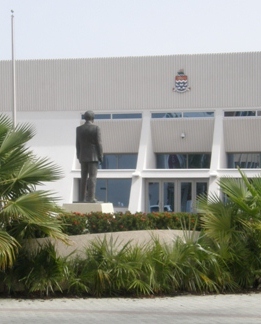
Opposition boycotts LA
 (CNS): The opposition members and the member for North Side all boycotted what they described as unlawful proceedings in the Legislative Assembly on Friday, after the premier called a meeting which the six members said was unconstitutional. For the second time in the last two months the opposition benches remained deliberately empty during the very brief meeting, as a result of the government’s decisions to bend the normal rules, orders and protocols regarding the country’s parliament. The opposition leader has written to the governor about the meeting, which was past the point of when the House should have been prorogued in order to make way for the new budget meeting.
(CNS): The opposition members and the member for North Side all boycotted what they described as unlawful proceedings in the Legislative Assembly on Friday, after the premier called a meeting which the six members said was unconstitutional. For the second time in the last two months the opposition benches remained deliberately empty during the very brief meeting, as a result of the government’s decisions to bend the normal rules, orders and protocols regarding the country’s parliament. The opposition leader has written to the governor about the meeting, which was past the point of when the House should have been prorogued in order to make way for the new budget meeting.
Alden McLaughlin said in his letter to the governor that the failure of the government to prorogue the Legislative Assembly was “without question” in his purview as it was a constitutional issue.
“The conduct of the Legislative Assembly and the routine abuse of the Standing Orders and parliamentary conventions by the current government are notorious and well documented,” McLaughlin wrote, adding that he believed the integrity of the parliamentary process was being undermined as a result because they affect the ability of the opposition members to play their constitutional role in properly scrutinizing the government.
“The present situation of no budget having yet been presented with only 2 weeks left in the current fiscal year is but another very grave example of the unrelenting downward spiral in the state of governance in these Islands. Arguably, these are all matters which are within your constitutional remit as governor," he wrote.
McLaughlin pointed out that at a Business Committee on Thursday there was no news on when the budget session would be called, just two weeks away from the end of the financial year.
Instead, the premier told the committee that a 6th meeting of the 2011-2012 session of the Legislative Assembly would be held Friday morning.
“No reasonable explanation was provided to the Committee as to why the State Opening was not proceeding and no date was given to members as to when the Budget would be ready for presentation,” the opposition leader wrote to the governor. “When pressed, the Premier would only say that 'the budget was in the hands of our lords and masters'."
McLaughlin set aside the inadequate notice to members as well as the concerns about when the budget would be delivered, but said that above all the Friday's meeting was unconstitutional. Sections 83 and 84 of the Constitution say there must be at least one session of the Legislative Assembly in every calendar year and the governor, should prorogue the Legislative Assembly annually.
As the House was last prorogued on 20 May 2011 and the last session of the Legislative Assembly was proclaimed on 23 May, it should have been prorogued by 22 May this year.
“That has not been done and the 2011-2012 session has expired since by virtue of section 84 of the Constitution the Legislative Assembly is required to be prorogued at least annually,” he wrote.
Ezzard Miller pointed out that he was forced to boycott proceedings, otherwise he would be condoning the unconstitutionality of the meeting and described it as a “sham” and totally unnecessary.
The House was adjourned this morning (Friday 15 June) after Bush made two speeches, presented a report on the term limits and moved a motion that the current government bills from the 2011/12 session be carried over to the next. However, the premier has not given a date for when the Legislative Assembly’s new parliamentary year will begin with the presentation of the budget.
Although the UDP government has left its budget presentation until the eleventh hour each year since coming to office, this time the administration may even fail to make the 30 June deadline, which could present a genuine financial crisis for the running of government from 1 July. With no appropriation law passed, it will not be able to pay bills, salaries or meet any other financial obligations as it will not have the legal authority to spend public money.
See opposition leader’s letter to the governor below.

Mac claims surplus budget
 (CNS): Despite being presented with financial requirements of close to $630 million from government, the premier claimed this morning that his administration has cut operational expenditure for 2012/13 enough to present a balanced budget and modest borrowing to the UK. Bush told the Legislative Assembly, which was boycotted by the opposition who said it was an unconstitutional sitting, that he was waiting on approval from the FCO in order to allow him to present the spending plans for next year in the new session of the House. Sources tell CNS that approval is unlikely to be forthcoming, however, without further changes.
(CNS): Despite being presented with financial requirements of close to $630 million from government, the premier claimed this morning that his administration has cut operational expenditure for 2012/13 enough to present a balanced budget and modest borrowing to the UK. Bush told the Legislative Assembly, which was boycotted by the opposition who said it was an unconstitutional sitting, that he was waiting on approval from the FCO in order to allow him to present the spending plans for next year in the new session of the House. Sources tell CNS that approval is unlikely to be forthcoming, however, without further changes.
Although the government believes it has presented a balanced budget, the calculations do not include capital expenditure and the figures fall far short of the targeted $60 million set out in the UDP's original three year plan. McKeeva Bush has claimed that the eleventh hour budget dovetails with the strategic policy statement he delivered last December and should satisfy the UK, despite a borrowing request.
Bush made no mention of the size of the deficit now anticipated for the close of the 2011/12 financial year and whether any further borrowing would be required to plug that hole.
In his statement Friday morning Bush claimed that responsible financial management remained a priority for his administration and it had worked hard to try and hone down spending requests, which had exceeded his $498 million target set for the civil service in January by some $130 milllion.
Bush did not make it clear how much of the excess was ultimately cut before the budget was sent to the UK or whether revenue predictions were sufficiently high to sustain spending levels above his January target.
"Ministers have been deliberating assiduously to remove this excess in order to present a more sustainable budget to the Legislative Assembly," the premier stated. "We got it down to $81 million and then we had to work even harder to cut that $81 million down."
He did not reveal the final figure but said it had a "modest surplus" and “very modest long-term borrowing" for things such as the solar energy programme, the young offenders centre, the primary and Clifton Hunter schools.
Bush hit back at the opposition’s criticisms of his budget and pointed the finger at the PPM, saying that the delay to the presentation of the budget was because government needed UK approval first, as a result of the previous administration destroying the country's finances.
"If Mr McLaughlin had not saddled the country with two school buildings at $100 million each and an administration building of $108 million, roads in the millions not yet paid for but which my government has been struggling with, then the budget and the other three I presented would not be so severely burdened," he added, as he accused him of mismanagement of public finances.
The clock is ticking on the need for government to present a budget and pass the appropriations law before the end of this month. Without that legislation, as of midnight on 30 June, government will have no legal authority to spend any money at all.
See the premier's full statement in the Legislative Assembly below.
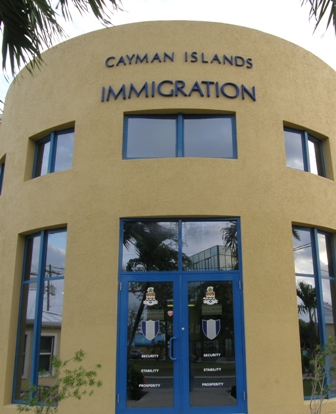
Review calls for 10 yr rollover
 CNS): A government appointed committee has recommend that the key employee provision in the immigration law be abolished and a ten year term limit introduced to address the issue of the controversial rollover policy. A report by the term limit review committee, established by government last year, was tabled in the Legislative Assembly on Friday in order to start a public consultation period on the committee’s findings and recommendations on the way forward in dealing with government's need to balance an expatriate workforce with the needs of Caymanians.
CNS): A government appointed committee has recommend that the key employee provision in the immigration law be abolished and a ten year term limit introduced to address the issue of the controversial rollover policy. A report by the term limit review committee, established by government last year, was tabled in the Legislative Assembly on Friday in order to start a public consultation period on the committee’s findings and recommendations on the way forward in dealing with government's need to balance an expatriate workforce with the needs of Caymanians.
See full story Key-wrong-way-chose

Realities & Rhetoric of One Man, One Vote
The decision to change a country’s voting system has far reaching political consequences that should not be taken lightly; and when we as citizens are asked to make critical decisions like this, it is important to make our choices based on facts, rather than emotion. The one man, one vote (OMOV) has become an emotive issue that is dividing our community.
Lines have been drawn on the basis of political orientation, and as one would expect in any political debate there are two sides – those that are for and those that are against. But behind all of the emotion and political rhetoric, what are the facts?
According to the advocates of OMOV/single-member constituencies, this system will guarantee better “equality, accountability and fairness” and it will introduce “a modern approach to political organization and voting systems to the Cayman Islands”.
These are noble objectives for any country; however, if we accept these ideals as the reason to change our electoral system, then what we are clearly saying is that the current system of voting that we have used to elect successive governments for the past 40 years was flawed, unequal, and unfair.
But is that really the case? Are we saying that the electoral system that elected such stalwarts and statesmen as Mr Cradock, Mr Jim Bodden, Miss Annie, Mr Benson and Captain Mabry is useless and outdated and now needs to be replaced? Are we saying that our current electoral system which required these members to cooperate and get along for the good of the country — whichever side they were on — is no longer useful and relevant to modern-day Cayman? If we vote 'yes' to the upcoming referendum, then we are clearly saying 'yes' to all of these questions.
While our current electoral system is not without its share of flaws, it can be amended and improved, but the current referendum does not provide us with that option. In fact, there are several different types of electoral systems that we could consider. Before we start tampering with something as important our electoral system, perhaps we should all read and gather our information from objective non-partisan sources, rather than acting on the basis of who shouts the loudest or who we like and don’t like.
Franklin D. Roosevelt once said, “The real safeguard of democracy is education.” Therefore we should educate ourselves before voting on the referendum. There are several good books and research papers that can help guide us to make the right decision.
One such book is Behind the Ballot Box, A Citizen’s Guide to Voting Systems by Douglas J. Amy, (Praeger Publishing, 2000). This book is a useful guide for anyone who wants to learn more about voting systems and their political implications. It gives readers all the information and analytical tools they need to make an intelligent choice among voting systems. It provides a set of political criteria that can be used to judge voting systems. It gives detailed descriptions of all the common voting systems used in the United States and other Western democracies and provides an analysis of the various political advantages and disadvantages associated with each type of system. And most of all, it doesn’t have a viewpoint that is slanted by the PPM, UDP, CNS, Rooster or the OMOV proponents.
On the issue of single-member constituency (SMC), the author, Douglas J. Amy, agrees that SMC is good at ensuring that all local geographical areas have a voice in the legislature. On the other hand he also cautions that it tends to reinforce the two-party system, produce manufactured majorities, encourage gerrymandering, discourage voter turnout, create high levels of wasted votes, and deny fair representation to third parties, racial minorities and women.
If academics like Amy can make these kind statements about the OMOV system, is this really a more “modern approach to political organization and voting"? Would this really represent an improvement in our democracy? How would independent candidates get elected in such a system?
Let’s now examine how the OMOV system would guarantee equality and fairness.
With the OMOV system the winners need not collect a majority of the votes, only more votes than their opponents. So, if candidate A receives 40% of the vote, candidate B receives 35%, and candidate C gets 25% then candidate A wins the seat. But this would mean that 55% of the electorate would not be represented by the candidate of their choice. How can this be considered “fair and equal?”
According to thefreedictionary.com, one man, one vote is a principle that was enunciated by the US Supreme Court in (Reynolds v. Sims,1964) which stated that all citizens, regardless of where they reside in a state, were entitled to equal legislative representation. The Supreme Court ruled that a state's apportionment plan for seats in both houses of a “bicameral state legislature” must allocate seats on a population basis so that the voting power of each voter be as equal as possible to that of any other voter.
Under our current electoral system we already have equal legislative representation – on the basis of district size; however, we do not yet have a bicameral legislature. Therefore, if the OMOV referendum is successful in July, will the next step be a move to make changes to our current Constitution to introduce a bicameral legislature? Is this the real hidden agenda behind the OMOV movement or is it just an unexpected outcome?
Whenever we make our decisions based on the facts it will reduce the likelihood of unexpected outcomes. So here are some more facts on the origins of the OMOV:
A quick look at Wikipedia reveals that “One Man, One Vote” is a slogan that has been used in many parts of the world in campaigns for “universal suffrage” and it is particularly prevalent in “less developed countries” during the “period of decolonisation and the struggles for national sovereignty”.
Is this the hidden political agenda behind the OMOV movement — to lead us on a fight for national sovereignty and towards decolonisation? While I do not believe that many of the supporters of the OMOV are necessarily advocates of decolonisation, there is a possibility that their enthusiasm is being manipulated by some who seek to achieve a higher agenda. We are opening a Pandora's Box, and I am not sure that enough research has yet been done to fully understand the pros and cons of this issue.
While no system is perfect, we certainly know what we have, but we sure don’t know what the heck we’re getting into!